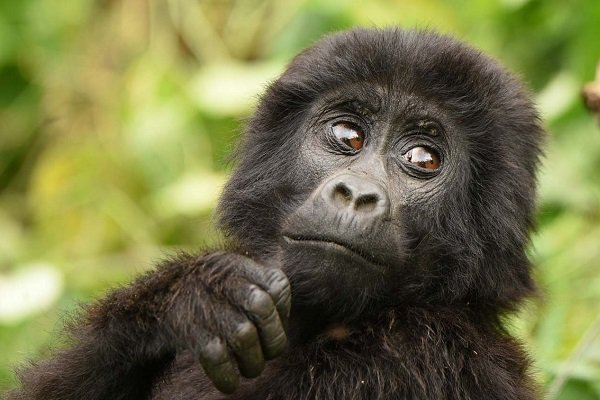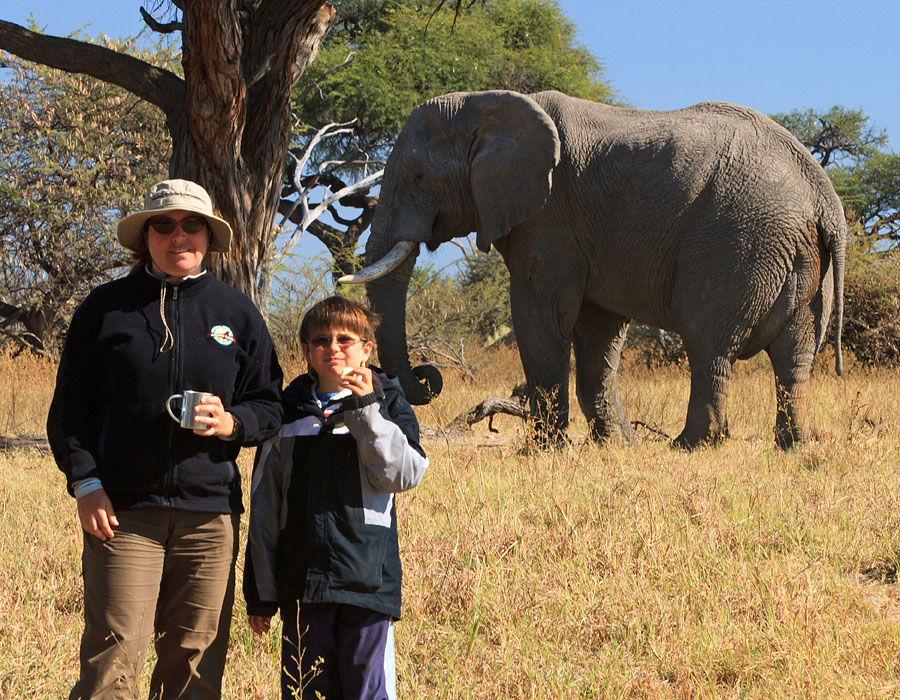Lifestyle of Mountain Gorillas
Mountain gorillas have an interesting lifestyle which can be experienced when you visit the four amazing Gorilla trekking destinations-Bwindi Impenetrable and Mgahinga Gorilla National Parks in Uganda, Virunga National Park in Democratic Republic of Congo and Volcanoes National Park in Rwanda.
Mountain Gorillas live in families/Groups of 5-30 individuals with a dominant silverback (being the head of the family) as well as adult females, blackbacks, juveniles and infants being members of the family. When it comes to leadership in the family, hierarchy is followed with the dominant silverback being the highest ranked member and enjoys a number of privileges including siring all the infants in the family.
However, it’s also the duty of the silverback to protect/defend the family against intruders that usually include bachelor/lone silverbacks or even other animals such as leopards in the forests, and even giving up his life if need be. Infants usually stay close to the group leader and lean on him as well as involving him in their games. Silverback’s protection and care towards young gorillas also improves the latter’s chances of surviving even after their mothers pass on.
Silverbacks, usually weighing up to 200 kilograms are mature male gorillas characterized by silver-gray hairs on their backs and hips that develop at 12 years old. Reproduction by females happens after every four years where one baby is born weighing only about 2.5 kilograms but grows faster to start walking after only 40 days.
An ordinary day of mountain gorillas begins with waking up early in the morning (leave their nests at 6:00am except when it’s cold) followed by foraging (on vines, shrubs, leaves, fruits, bamboo shoots and pith of herbs), resting in late morning and midday. Half of their time is spent eating with resting time lasting a third of the day.
Mountain gorillas also spend 30% of their time traveling from one place to another and socializing is done during resting periods. The late morning and midday is therefore crucial for the social life of mountain gorilla families because it’s the time they interact with their partners and is also is the period when infants can get a chance to play freely without being disruptive while elders snore away. Playing has a vital role in the life of infants as well as blending into the gorilla family because it enables them to get used to every member and be accepted as part of the family. Also, it’s during play time that young gorillas learn how to communicate and understand the different patterns of behavior that are not inborn.
Grooming and teaching is also done during rest periods. Mountain gorillas may not be master carpenters but can make the best beds on a daily basis. Every gorilla makes its own nest (on ground and in trees constructed with grass or tree branches) except babies who sleep close to their mothers.
In conclusion, mountain gorillas are extraordinary wildlife species found in Bwindi Impenetrable, Mgahinga, Virunga and Volcanoes National Parks. The daily life of these primates starts with leaving their nests at 6:00am, foraging, resting during day and ends with making their nests in the evening.



